The Ultimate Guide to Safari Tours in Africa
From witnessing an elephant cajole her young across a river, to seeing a lion stalk its prey on the savanna, to enjoying a drink as the sun sets over the Serengeti - an African safari tour presents a myriad of unforgettable moments. Plan your trip with our safari travel guide.
Always wanted to see the Big Five - lion, leopard, rhino, elephant, and African buffalo? Or to witness the Great Migration - where millions of wildebeest and zebras cross the Serengeti?
Whatever your reasons for embarking on a wildlife safari in Africa, this wildlife-packed continent promises a once-in-a-lifetime experience.
But the sheer number of safaris available can be overwhelming, taking place in countries across Africa. And then there's the cost - even a value week-long safari can start at around £3,000 per person, rising to double this for a more luxurious trip. With this in mind, you need to make sure you get an experience that's memorable for all the right reasons.
In this safari travel guide, we explore the most important things to think about before you book your African adventure.
Take time to research safari tour companies
It's important not to rush into buying what is sure to be an expensive holiday.
Look into a number of different safari tour companies and compare things like:
- What's included in the package
- Cost
- Accommodation
- Customer reviews
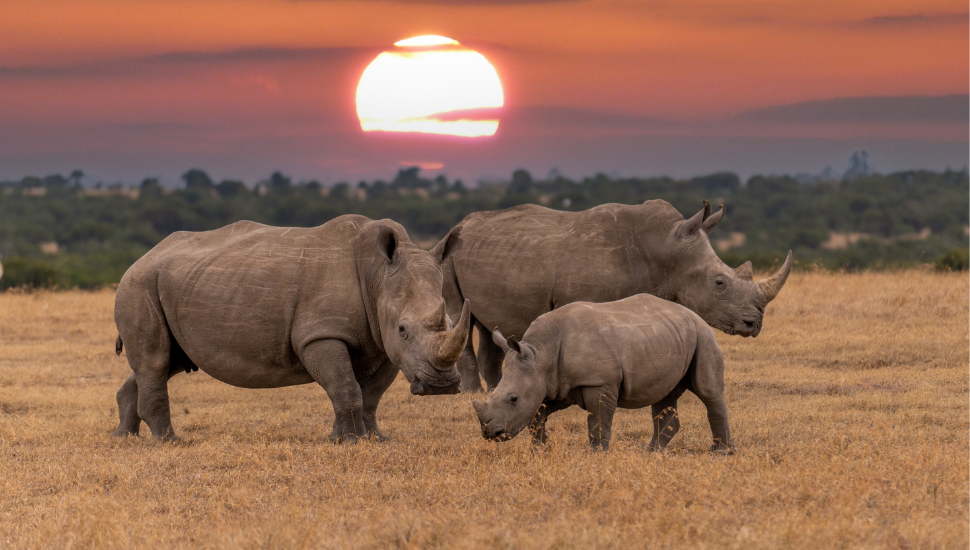
Ensure you have enough time
African safari tours last anywhere between 7 and 15 days. Ensure you give yourself enough time to see the animals on your hitlist. And of course, you may want more time to relax afterward - for example, on a beach holiday (Zanzibar, Cabo Verde, and Kenya are good examples).
While exhilarating, a safari can be tiring, so a relaxing break afterwards can give you time to regenerate.
Consider grouping countries to see multiple locations on your African safari tour
A number of African countries are famed for their safaris. As such, you might want to consider a tour that includes two or more countries in a particular geographical location, in order to get the most of your time in Africa.
Popular country groupings include:
- South Africa, Zimbabwe, and Zambia
- South Africa, Namibia, and Botswana
- Botswana, Zimbabwe, and Zambia
- Kenya and Tanzania
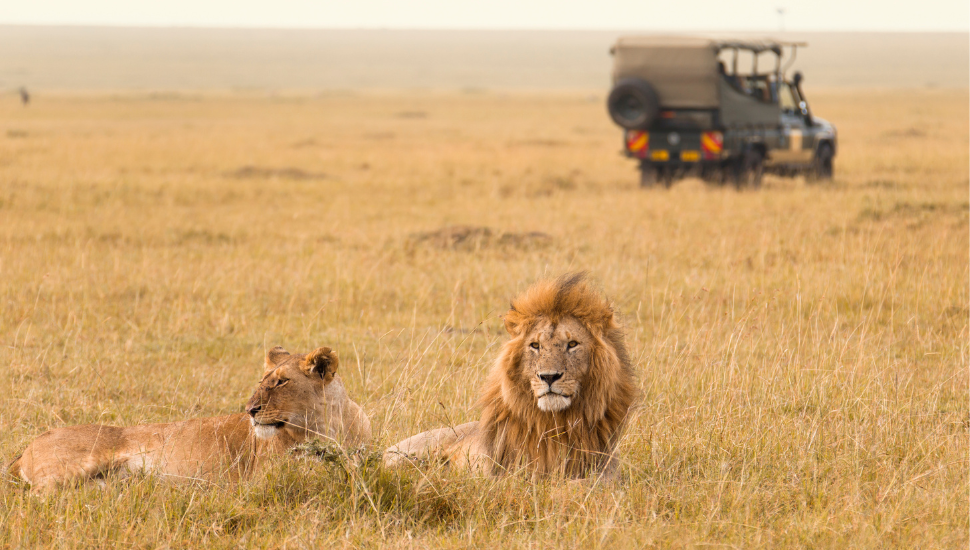
What’s the best time for an African safari?
June to October is the best time for a sub-Saharan safari (where most safari hotspots are located). This is because of water scarcity, which compels the animals to congregate around water sources - making them much easier to spot (for both you and for predators!).
It’s also possible to enjoy a safari at other times of the year: there will be less visible activity, but the cost may be much lower.
Best safari tours in Africa
Here's a quick rundown of the top safari destinations in Africa, and what makes them special:
Botswana
- Nationally-protected parks and reserves
- Private concessions (featuring camps with exclusive rights to thousands of acres of wildlife habitat)
- Low-density tourism
- Luxury safari options
- Chobe National Park - excellent for elephant spotting
- More affordable safari options in the Green Season (Nov-March)
Kenya
- One of the top safari destinations on the continent
- Masai Mara Game Reserve - for excellent big cat viewing
- Many other activities to try, such as horseback riding and biking
- Night drives possible in Conservancy areas
- Laikipia plateau offers wild dog, zebra, and giraffe
- Amboseli National Park for amazing elephant viewing
Namibia
- Abundant black rhino and elephant spotting
- Home to the stunning Namib Desert
- Location of the dramatic Skeleton Coast
- Etosha National Park offers classic safari species
- Great when combined with South Africa or Botswana
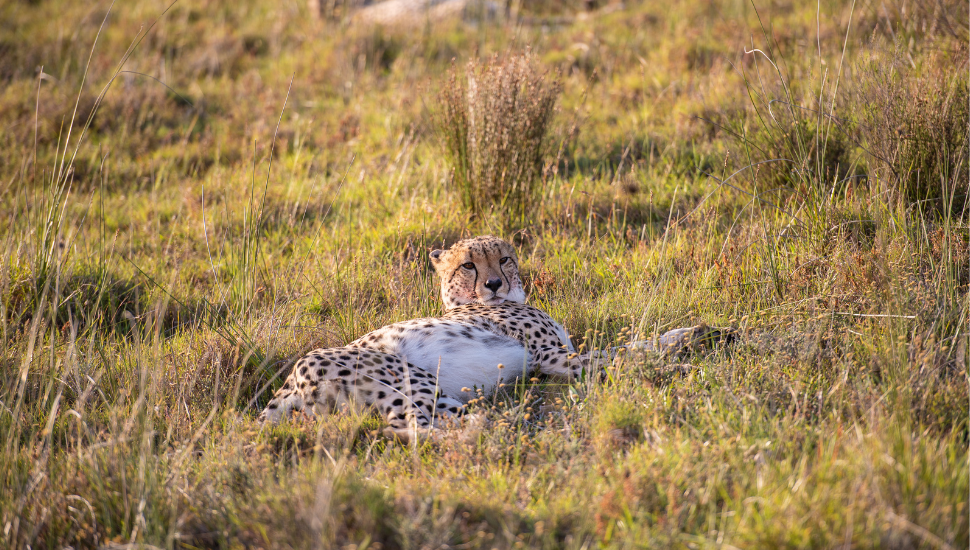
Rwanda
- Among the best safari tours in Africa for primate spotting
- Nyungwe National Park forests are home to many primates
- Akagera National Park is great for Big Five game viewing
- Gorilla trekking
- Genocide memorials often feature in Rwanda tours
South Africa
- Home to the famous Kruger National Park - for easy Big Five spotting
- Sabi Sand and Timbavati reserves (near Kruger) offer safaris with fewer people
- Mountains, beaches, and wineries to visit
- Higher specification safari lodges with internet, spas, etc.
Tanzania
- A prime safari destination, with a huge array of wildlife
- Home to the Serengeti, Ngorongoro Crater, Zanzibar, and Mount Kilimanjaro
- Location of the annual Great Migration (when around 2 million wildebeest, zebra, and gazelle cross the Serengeti)
- Mahale National Park offers beaches and jungle treks
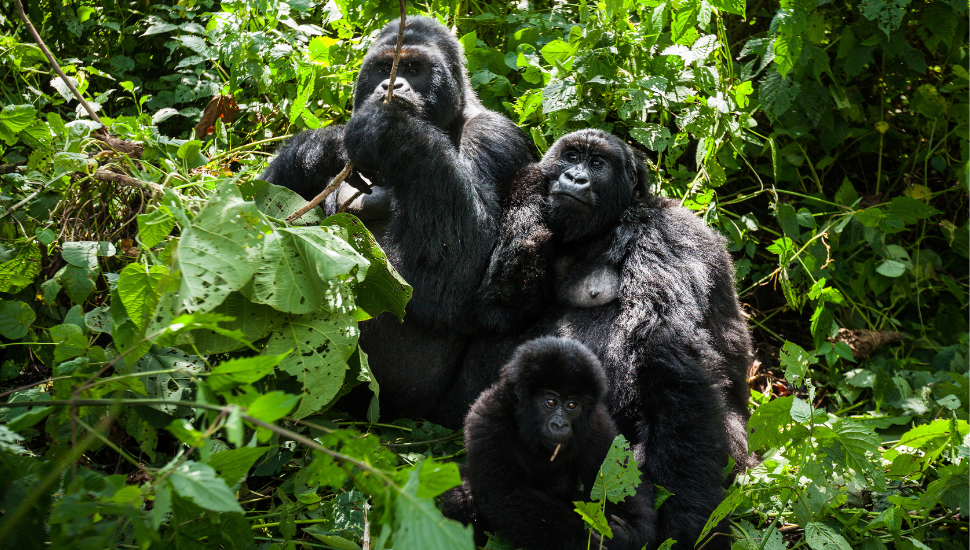
Uganda
- Excellent gorilla and chimpanzee trekking
- Home to Queen Elizabeth Park for general game viewing
- Location of the remote but stunning Kidepo Valley National Park
- Bush flights available if you want to avoid long drives between destinations
- Cheaper lodgings but higher transport costs
- Gorilla permits half the cost of Rwanda
Zambia
- Many small and intimate bush camps
- Rustic on-the-ground charm
- Exceptional guides, second only to Zimbabwe
- Home to South Luangwa National Park, famous for walking safaris
- Canoeing and powerboating can be enjoyed in the Lower Zambezi National Park
- Many independent safari outfits, as opposed to large safari tour firms
Zimbabwe
- Excellent guides who pass rigorous exams
- Home to the legendary Victoria Falls
- Many safaris focus on active tracking and walking tours
- Location of Hwange Park, where waterholes attract elephants and buffalo
- Tours are often combined with safaris in Botswana or South Africa
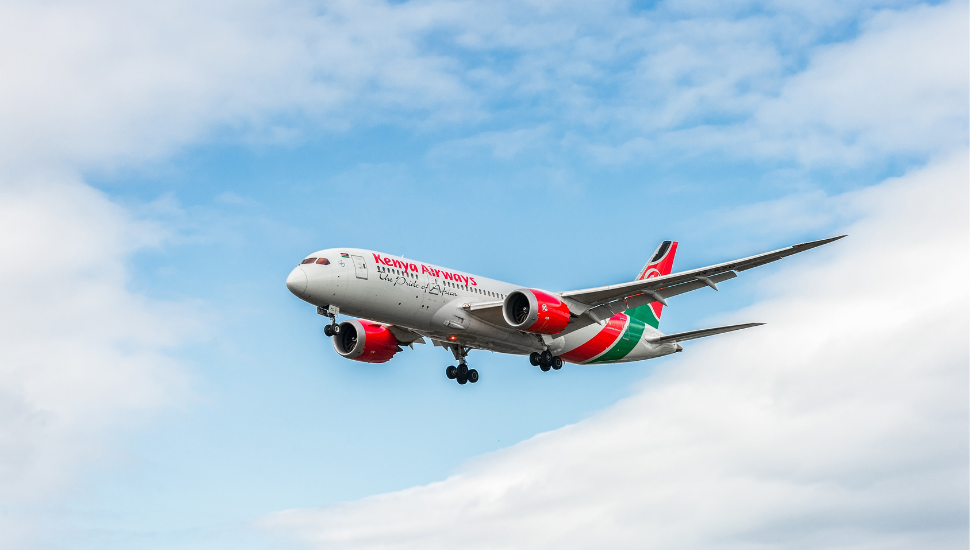
Credit: Mindaugas Dulinskas - stock.adobe.com
Book flights ahead to save
As always, you're more likely to bag a cheaper flight if you book well in advance.
Other activities to consider
Aside from the safari itself, there are numerous other activities to try in African countries, including:
- Post-safari beach break (such as in Zanzibar)
- Horse riding
- Ballooning
- White water rafting
- Specialist photography
- Bird watching
- Fishing
- Scuba diving
- Mountain climbing
- Trekking
- Cultural and historical tours
Age and health
Your age and health will impact how much you get from an African safari tour. But so long as you're in good health and relatively fit, you should be able to enjoy a safari.
Note that you'll be sitting for long periods and have the sunshine and general heat to contend with.
You can discuss any concerns you have with your guide - and they will be sure to accommodate any special requirements.
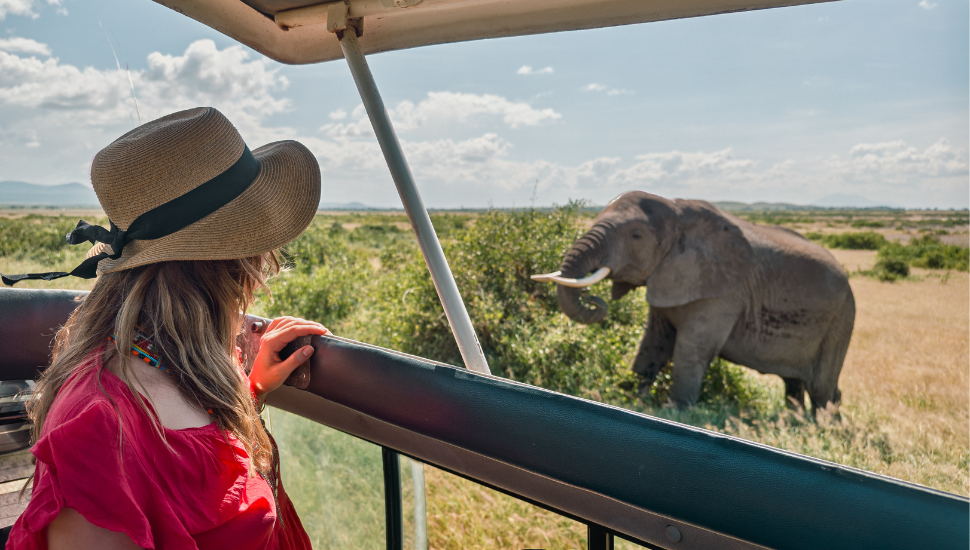
Pack appropriate clothing and sunblock for your safari
It goes without saying that long sunny days are the norm on a wildlife safari in Africa. With this in mind, ensure you have a sunhat, sunglasses, and long-sleeved shirts.
While specialist safari clothes are available, you don’t need to invest in these: just ensure your clothes are durable enough to withstand the rigours of the outdoors and prevent sunburn.
Don't disturb the wildlife
Staying quiet is good safari etiquette. As well as ensuring your fellow adventurers can enjoy the wildlife in peace, there's safety to think about: you don’t want to annoy a five-tonne elephant with your excited shrieks!
Consider investing in good camera gear
Even the latest smartphones are not sufficient for safari photography. If you can afford it, invest in a camera with a good zoom lens, so you can capture great shots of your trip.
After all, it would be a pity to go all the way to Africa and not be able to take good photos of the amazing animals you see.
Buy a pair of binoculars
Unless you have superb eagle-eyed vision, you'll need a pair of binoculars to see what animals are on the horizon.
Binoculars are especially important for bird spotting.
Be ready to wake up early
Sleeping in is not for safaris. You'll probably need to rise early to join your morning tour. The early hours see a great deal of animal activity and you don’t want to miss it!
The wildlife will also be very active in the evening. (Animals tend to move around a lot less in the heat of the day). As such, most safaris feature a morning and an evening tour each day.
Stay healthy
Ensure you bring plenty of water with you - and remember to top up as your tour unfolds. And as mentioned, a sunhat is essential - as is sunblock. Additionally, yoga, stretching, and walking are important to stay limber during downtime - since you'll be sitting a lot on your tours.
Early nights are also essential, since you'll be getting up so early. And bring a first aid kit and any medications you might need. Remember, once you're in the bush, it will be very difficult to get any essential items.
Be sure to visit your doctor or travel nurse before you depart the UK: they will be able to advise on risks such as malaria, and what medicines to take. Once on your tour, wear insect repellent and use a mosquito net.
Wifi access is unlikely
You're unlikely to have wifi access on your safari (with the exception of some South African camps). If you do have it, it will probably be painfully slow. Instead, why not bring some good books.
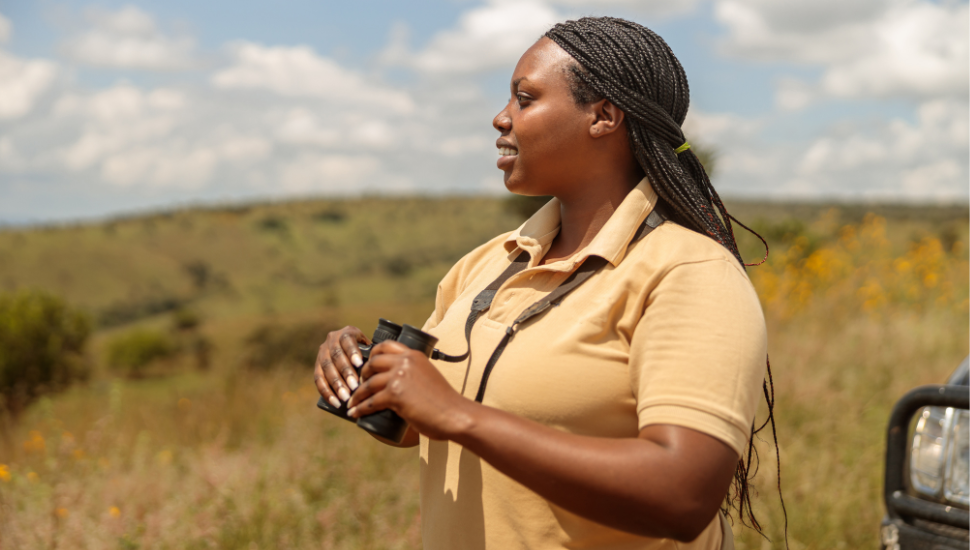
Consider tipping your guide
Safari guides are generally extremely hard working, and will be up before you rise, and still awake when you go to sleep. They're always ready to answer your questions - even when they've been asked the same ones countless times.
However, guides and other lodge staff do not make a large salary, so a tip from you will go a long way. While not mandatory, a tip is very much appreciated (and somewhat expected).
Don’t be afraid to ask questions
Your guide will be happy to answer all your questions. Since safaris are often once-in-a-lifetime experiences, you might as well gather as much information as you can.
Even if you've done lots of research, you're bound to have questions.
Bring local cash as well as debit/credit cards
In order to pay for goods and services on your African safari, it's a good idea to bring both cash and debit/credit cards with you. Some outlets won’t accept cards - only cash.
It’s also wise to use your card(s) in a limited number of places - namely ones that you trust, such as hotels and big restaurants.
Since you'll probably have prepaid your safari and accommodation, your ready cash and cards will be used for things like tips and souvenirs.
Use a GSM-enabled smartphone
Most African countries use the GSM cell phone network (as opposed to CDMA), so it’s important to bring a phone that can accept a GSM SIM card. This way, you'll be able to stay connected with your tour guide, and other members of your group - as well as handle any emergencies.
Some countries - such as Kenya - use mobile money apps. When you register your SIM, ask the outlet to set up the local money app. This will make paying for things much quicker and easier.
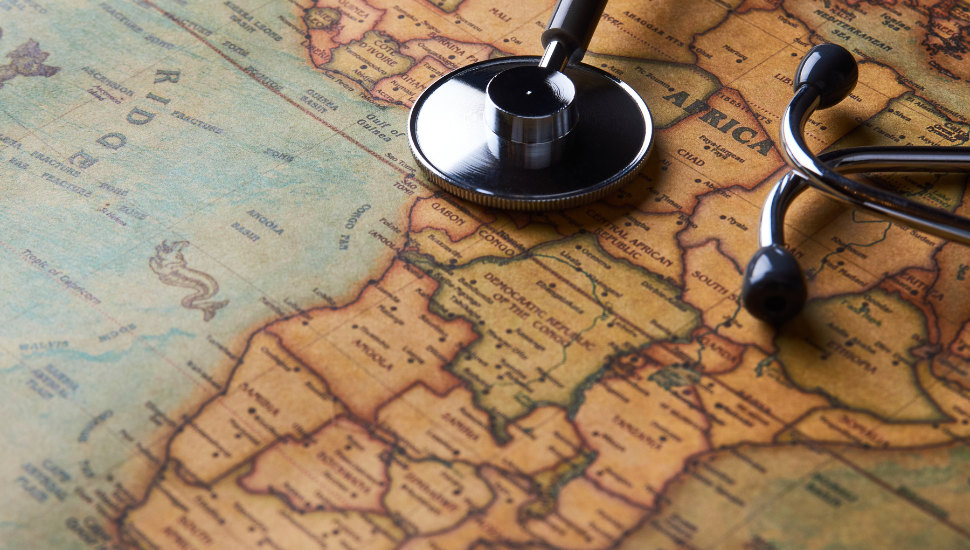
Get travel insurance for your safari
Taking out sufficient travel cover is essential for any overseas trip, and that goes double for a safari break.
You’ll need to think about what activities you’ll undertake, and ensure your travel insurance covers you for them.
Ensure your policy includes:
- Cover for any adventure activities - safari, trekking, scuba diving etc.
- Hospitalisation, medical and repatriation expenses cover of at least 2 million pounds - so you can get the help you need if the worst happens.
- Cancelation, curtailment and baggage cover.
Conclusion
A wildlife safari in Africa is likely to be one of the most rewarding holidays you’ll ever have, where you’ll get up close to some of the planet’s most incredible wildlife. However, given the cost and complexity of such a trip, research and planning are essential - especially if you need to consider factors such as age and health.
Get a Quote